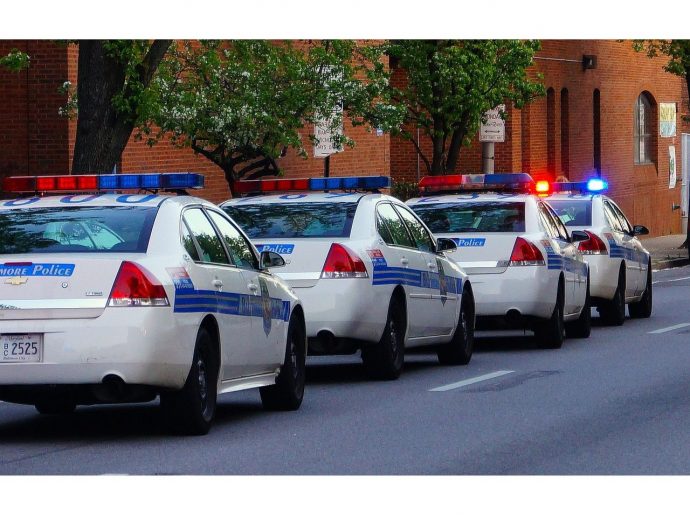Categories more
- Adventures (17)
- Arts / Collectables (15)
- Automotive (37)
- Aviation (11)
- Bath, Body, & Health (77)
- Children (6)
- Cigars / Spirits (32)
- Cuisine (16)
- Design/Architecture (22)
- Electronics (13)
- Entertainment (4)
- Event Planning (5)
- Fashion (46)
- Finance (9)
- Gifts / Misc (6)
- Home Decor (45)
- Jewelry (41)
- Pets (3)
- Philanthropy (1)
- Real Estate (16)
- Services (23)
- Sports / Golf (14)
- Vacation / Travel (59)
- Watches / Pens (15)
- Wines / Vines (24)
- Yachting / Boating (17)
Everything You Need to Know about Why Police Checks Are Essential in Australia
Published
02/16/2025In Australia, police checks play a crucial role in ensuring safety, security, and compliance in various aspects of life, including employment, volunteer work, tenancy applications, and even visa processes.
Whether you're an employer, a job seeker, or someone applying for a government role, understanding the significance of Police Check Australia can help you navigate legal and professional requirements effectively. In this article, we will explore why police checks are essential, how they work, and who needs them.
What Is a Police Check?
A police check, also known as a Nationally Coordinated Criminal History Check, is a document issued by an accredited agency or the Australian Federal Police. It details an individual’s criminal history, including past convictions, pending charges, and other police-related records. These checks help organizations and authorities assess whether a person poses any potential risk in certain roles or activities.
Why Are Police Checks Essential in Australia?
Enhancing Workplace and Community Safety
One of the primary reasons police checks are mandatory in many industries is to ensure the safety of employees, clients, and the general public. Employers in healthcare, childcare, aged care, and education, for example, require police checks to prevent individuals with relevant criminal histories from being placed in sensitive roles.
Legal and Regulatory Compliance
Certain Australian laws and industry regulations mandate police checks for specific professions. For example:
- Aged care and childcare workers must comply with government regulations to ensure the safety of vulnerable individuals.
- Security and law enforcement personnel must undergo rigorous background screening before employment.
- NDIS (National Disability Insurance Scheme) workers require checks to protect people with disabilities.
Failing to comply with these legal requirements can result in heavy fines and legal consequences for businesses.
Building Trust and Credibility
Employers and organizations conduct police checks to maintain their reputation and trustworthiness. A clean police check reassures customers, clients, and stakeholders that employees and service providers uphold high ethical and legal standards.
Reducing Risks in Hiring and Volunteer Roles
Employers use police checks as part of their background screening process to minimize risks such as fraud, misconduct, and theft. Additionally, many volunteer organizations require police checks to ensure that volunteers working with children, the elderly, or people with disabilities do not have a history of offences that could put vulnerable individuals at risk.
Tenant and Visa Applications
Landlords and property managers sometimes request police checks before approving rental applications, especially for high-value properties. Similarly, individuals applying for visas, residency, or citizenship in Australia may be required to provide a police check as part of their background assessment.
How to Obtain a Police Check in Australia
There are several ways to apply for a police check in Australia, depending on the purpose and jurisdiction:
- Australian Federal Police (AFP) Check: Required for immigration, visa applications, and Commonwealth government employment.
- State or Territory Police Check: Each state has its own police department issuing background checks for employment, licensing, and general purposes.
- Accredited Agencies: Several private organizations are authorized to conduct police checks quickly and efficiently, especially for employment and volunteer purposes.
The application process typically involves submitting identification documents, filling out an online or paper form, and paying a fee. Processing times can range from a few days to several weeks, depending on the type of check requested.
Do Police Checks Show Everything?
A police check does not necessarily show all past offences. In Australia, certain convictions may be spent or removed from records after a specific period, depending on the state’s laws. Additionally, minor offences may not always be disclosed in standard police checks. However, serious offences, pending charges, and relevant convictions will be visible in most cases.
Conclusion
Police checks are an essential part of maintaining safety, integrity, and legal compliance in Australia. Whether for employment, volunteering, tenancy, or immigration, these checks help organizations and authorities make informed decisions while protecting the community. If you need a police check, ensure you apply through the correct channel and provide accurate information to avoid delays.















